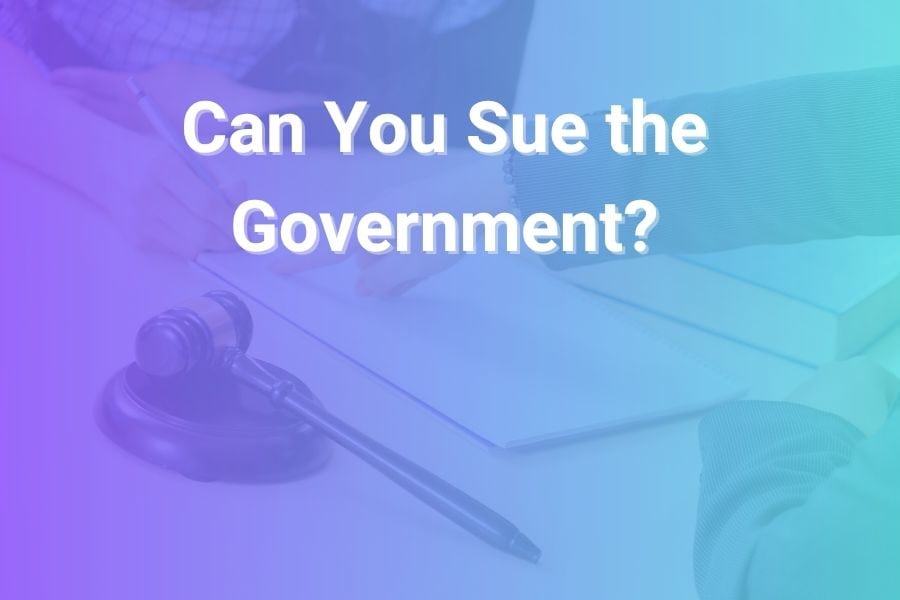
It’s a natural question—what happens when the government makes a serious mistake that hurts someone? Whether it’s a postal truck crash, a slip on federal property, or an injury caused by a negligent agency, most people wonder if they can hold the government responsible like any private citizen.
The short answer: sometimes you can, but it’s complicated. Over time, laws such as the Federal Tort Claims Act (FTCA) have made it possible to sue in certain cases, but the path is narrow and full of exceptions. In this article, you’ll learn when you can sue the government, how the process works, what limits exist, and what steps to take if you believe a government entity caused you harm.
Understanding Sovereign Immunity: The Historical Barrier
For centuries, governments have enjoyed “sovereign immunity,” a legal doctrine that protects them from being sued without consent. The concept dates back to English law—“the King can do no wrong.” When the U.S. was founded, this principle carried over. It meant you couldn’t take legal action against the federal or state government unless they allowed it.
This immunity was meant to protect public funds and prevent endless litigation that could slow down government operations. However, it often left injured citizens with no remedy. Over time, public pressure led lawmakers to carve out exceptions, allowing limited suits when government employees or agencies act negligently.
The Federal Tort Claims Act (FTCA): A Turning Point
In 1946, Congress passed the Federal Tort Claims Act, which became the cornerstone of holding the U.S. government accountable. The FTCA allows private citizens to sue the federal government for personal injury, death, or property damage caused by a federal employee acting within their job scope.
Under this act, the government waives its immunity in specific cases—mainly negligence. This means if a government worker does something careless that would make a private individual liable, the government can be sued in a similar way. However, not every act qualifies.
For example, you can sue if a government employee crashes into your car while driving a government vehicle or if a federal agency fails to maintain safe conditions on public property. But if a decision involves policy judgment—like how an agency allocates resources or enforces laws—that’s usually protected under the “discretionary function” exception.
When You Can Sue the Federal Government
The FTCA covers a range of negligent actions. Here are some of the more common examples where a lawsuit might succeed:
- A postal service truck causes an accident that results in injuries.
- A federal employee’s careless maintenance of a building causes a slip-and-fall.
- A government doctor provides negligent medical care at a Veterans Affairs hospital.
- Property damage results from negligent construction or oversight by a federal contractor under direct government supervision.
These cases rely on proving negligence—the government worker owed you a duty of care, breached it, and caused measurable harm.
When You Can’t Sue the Federal Government
Despite the FTCA, several areas remain off-limits. The government keeps immunity in certain categories to protect policy decisions and core functions.
Some common exclusions include:
- Claims based on discretionary functions, like regulatory or military decisions.
- Injuries caused by independent contractors working for the government.
- Intentional torts, such as assault or false imprisonment (though there are exceptions for law enforcement officers).
- Claims arising from combat or wartime activities.
In other words, if the harm results from how the government makes or enforces laws, you likely can’t sue.
How to File a Claim Under the FTCA
Before suing, you must first file an “administrative claim” with the specific federal agency you believe is responsible. This claim must be filed within two years of the incident. You’ll need to use Standard Form 95, detailing the event, damages, and amount you seek.
Once submitted, the agency has six months to review and respond. It can either settle or deny your claim. Only after a denial—or if six months pass without a decision—can you file a lawsuit in federal court.
This process is mandatory. If you skip the administrative claim, the court will dismiss your case. Filing deadlines are strict, and missing them often means losing your right to sue.
What Happens in an FTCA Lawsuit
If your claim moves to court, it’s not like a typical lawsuit against a private party. You won’t have a jury trial; a federal judge will decide your case. You’ll also need to follow strict procedural rules. The court will consider whether the government employee acted within their job scope and whether the conduct would make a private person liable under state law.
You can recover damages for medical bills, property loss, lost wages, and pain and suffering, but not punitive damages. The goal is compensation, not punishment.
Suing State or Local Governments
Each state has its own version of the FTCA—often called a State Tort Claims Act. These laws outline when you can sue state or municipal agencies. Like the federal system, state and local governments also enjoy immunity unless they’ve waived it.
Common examples where you might sue a city or state include:
- A city bus driver causes an accident.
- A state-run hospital commits medical negligence.
- A public school fails to maintain safe premises.
However, every state sets its own rules, deadlines, and limits on damages. Some require filing a notice of claim within as little as 30 or 60 days after the incident. Missing these early steps can end your case before it begins.
Differences Between Federal and State Claims
While both systems operate on similar principles, they differ in structure and coverage:
- Time limits: Federal claims give you two years; some states give only months.
- Procedures: State claims often involve local boards or administrative hearings before court.
- Immunity scope: Some states still shield specific agencies like police departments or schools.
- Damages caps: States often limit compensation, especially for non-economic damages.
Because of these variations, it’s critical to understand your state’s rules or seek a lawyer who does.
Recent Trends and Examples
In recent years, government liability has gained public attention. The U.S. Department of Justice reports that over 10,000 FTCA claims are filed annually, resulting in hundreds of millions in settlements and judgments. Most cases involve motor vehicle accidents, medical malpractice at VA hospitals, or property damage from federal projects.
Yet, many claims still get denied. According to federal data, fewer than 25% of claims result in payment. The high rejection rate usually stems from missing deadlines, incomplete forms, or the claim falling under an exemption.
States show similar patterns. For instance, cities like Los Angeles and New York pay millions yearly for negligence claims—from pothole injuries to police misconduct—but strict caps often limit individual payouts.
The Role of Legal Representation
Navigating government claims is complex. An experienced attorney can determine if your case fits within an immunity waiver, calculate damages, and file within the required deadlines. Lawyers also help negotiate settlements during the administrative phase, where many cases resolve before reaching court.
Most attorneys handling FTCA or state claims work on contingency, meaning they get paid only if you win. However, attorney fees against the government are limited by law—typically 25% of any judgment or 20% of an administrative settlement.
Alternatives to Suing
Sometimes, filing a lawsuit isn’t the only or best solution. Some agencies offer internal claims programs or settlements without court involvement. Others provide compensation through specific statutes, such as for vaccine injuries or veterans’ benefits.
If your loss stems from a government policy rather than negligence, advocacy, media attention, or legislative change might achieve more lasting results than a lawsuit ever could.
Challenges and Realities of Suing the Government
Even when you meet every requirement, suing the government remains an uphill battle. Courts interpret immunity exceptions narrowly, and the burden of proof rests on you. Documentation, expert testimony, and detailed evidence are critical.
Government defendants often have strong legal teams and procedural advantages. Patience is essential—claims can take years to resolve. Still, persistence can pay off when negligence is clear and properly documented.
Key Tips Before You File a Claim
- Act quickly: Deadlines are unforgiving. File within the statutory time limit.
- Document everything: Photos, reports, witness statements, and medical records strengthen your case.
- Know your jurisdiction: Determine whether your claim falls under federal, state, or local law.
- Be realistic: Understand damage caps and exemptions that may apply.
- Consult a lawyer early: Even one mistake in filing can end your claim.
The Bigger Picture: Accountability and Balance
Allowing citizens to sue the government is about balance. It holds public institutions accountable while protecting them from excessive litigation. Laws like the FTCA aim to ensure fairness without crippling public service.
Accountability matters—when the government makes mistakes, people deserve recourse. But maintaining efficient governance also requires limits. The system may not be perfect, but it reflects a continuing effort to balance individual rights and public responsibility.
Conclusion
Yes, you can sue the government—but only under specific conditions. The right to hold public entities accountable exists, but it’s carefully controlled by laws that define when, where, and how.
Whether you’re dealing with the federal government, your state, or your local city, success depends on understanding these rules and acting quickly. If negligence caused your injury or loss, the law provides a path—though a narrow one—to seek justice.
